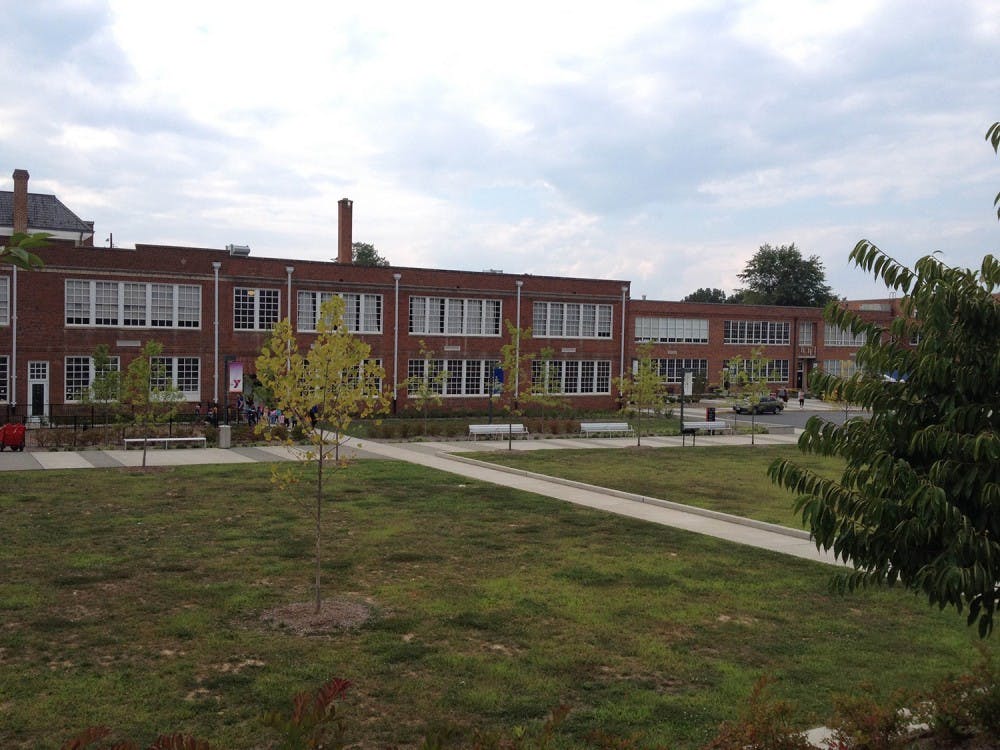The School of Continuing and Professional Studies hosted an event at the Jefferson School African American Heritage Center Thursday to discuss how to expand opportunities to lower income individuals and communities and stress the importance of accessibility in post-secondary education.
The event, titled “Renewing the American Dream: Expanding Education and Opportunities for More Americans,” was facilitated by Allison Linney of Allison Partners, an organizational development service. It was comprised of two panels, along with performances by Austyn Nowell, a Charlottesville High School senior and singer-songwriter, and closing words from Frank Friedman, president of Piedmont Virginia Community College.
“Tonight's conversation is about what we can do to make the American dream work for people,” said Alex Herandez, Dean of the School of Continuing and Professional Studies. “By many accounts of the U.S. economy story, unemployment is low, but those statistics are really square with a lot of people's experiences. There's a concern in health care and education. These are big, big issues.”
University President Jim Ryan facilitated the first panel, which addressed how communities can create opportunities for their inhabitants. The first panel hosted Brennan Gould, CEO of Charlottesville Area Community Foundation — a local endowment that facilitates philanthropic giving to nonprofits in Central Virginia — and Angela Ciolfi, executive director of the Legal Aid Justice Center — a Charlottesville-based nonprofit that provides legal representation to low-income individuals.
“It's so critical that we not just acknowledge, but start from the honest understanding that our communities don't work the same way for everyone, and that is our collective history as a society, as a nation, that there are systems and structures that were intentionally built to divide,” Gould said. “I also think it's important to realize that we have present day systems and structures that are holding inequities in place.”
Gould is also co-chairing the President’s Council on University and Community Partnerships, which aims to better the relationship between the University and Charlottesville communities.
“One thing that we know [is that] it's very critical to have affordable and quality childcare for families, and leveraging the University's academics and certification programs as well as the many different placement efforts that are happening around the early childhood education community together is really, really important,” Gould said.
Ciolfi discussed past negative relations between the University and Charlottesville communities — when community members would complain about students and faculty coming to their neighborhoods to use residents for research — and the progress that has since been made. She made specific note of the Equity Center established by the University in October, which aims to improve relations and communication between the Charlottesville community and the University with a focus on addressing racial and socioeconomic disparities.
“The Equity Center at U.Va. is now committed to investing in a community research and review board that is actually hosted by the public housing association in residence, where the board will actually have an opportunity to review and provide recommendations on the studies of their concern,” Ciolfi said.
Ciolfi added that hope for equity is found in the profound community engagement on the rise in Charlottesville, as seen through their work to change the eviction policy and lower the eviction rate, and Gould noted the growing amount of conversation and heightened awareness bode well for a hopeful future.
Hernandez facilitated the second panel, discussing how to “create opportunity for business and workforce development” with Andrea Copeland-Whitsett of the Chamber Business Diversity Council and Hayes Humphreys, CEO of Devil’s Backbone Brewery.
“My work with the Chamber Business Diversity Council is all about partnerships and collaboration, and collaboration is in partnerships, because what we do not want to do at the Chamber is duplicate services,” Copeland-Whitsett said. “Our goal is to make sure we are partners with these organizations, so when our chamber members come to us who need that additional support, we know who to refer to.”
Humphreys also touched on the importance of additional support, discussing the difficulties of finding trained brewery workers before microbreweries began to rapidly appear across America.
“We are currently engaged with PVCC, working on a kind of basic management skills development program so that we can take some of these people who are great operators and train and develop them into the skill sets that we need to manage the tactical teams with a brilliant team,” Humphreys said. “So there's great local resources for that, you know, and those things are very affordable but they do.”
Friedman closed the event by reinforcing the economics behind why more Americans need post-secondary degrees and the opportunity and resources to obtain them, stressing that oftentimes not having post-secondary degrees can lead to the inability to support individuals and families.
“You know the title of tonight's event is ‘Renewing the American Dream: Expanding Education and Opportunity for More Americans’ — that’s the mission at PVCC,” Friedman said. “I've been there as president for 21 years — that's what we do, 24/7. Every day, every month, every year. We don't dabble at it, it is not a sidelight for us, it's why we exist.”





